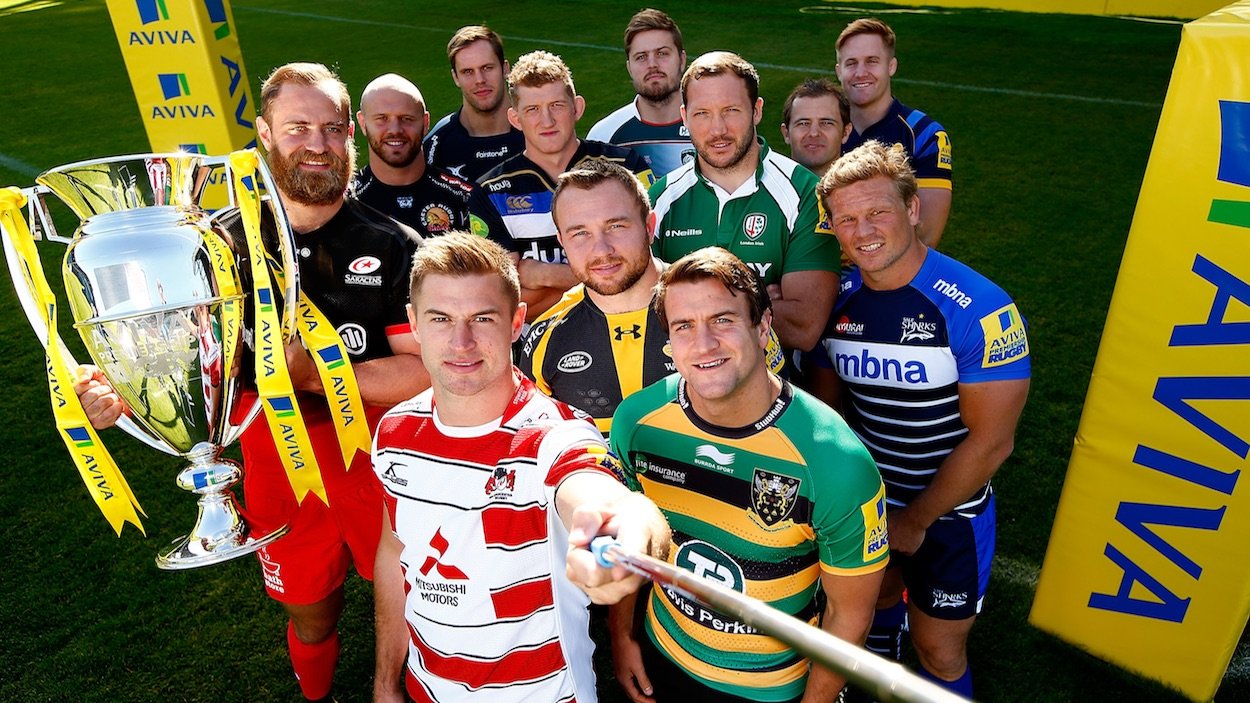Peter Bills: An Inconvenient Truth About English Rugby

News of record attendances and big TV deals masks an inconvenient truth about Premiership clubs, writes Peter Bills: most of them are skint.
The party is in full swing up front and thousands are invited.
Only trouble is, there’s a lot of banging on the back door. Some guy calling himself the bailiff wants to come in and spoil the fun.
It’s a bit like that for most of the clubs in the Aviva Premiership. To put it bluntly, they’re living a lie. The bragging statements about record attendances, big TV deals and the like mask an inconvenient truth: a lot of them are skint.
Take the current English and European champions Saracens. You can’t get higher up the rugby pole than to conquer not just your own country but Europe too. Yet in 2015, Saracens’ debts soared beyond £40 million. According to figures filed at Companies House in London, Saracens’ now owe a cool £41.6 million.
OK, you say, that’s one club. But you’ll get bored if I trawl through a set of figures for everyone else in the Premiership. Let’s just look at Bath. The good news is, in the year to June 2015, their turnover grew to £14.6 million. The bad news? They made a loss of £1.8 million. Mind you, that was an improvement on the previous year when they lost £3 million.
Premiership rugby is awash with cash – on the surface. The RFU’s latest agreement with the clubs pledged funding worth more than £200 million over an 8-year period. A lucrative TV deal was signed with BT Sport for exclusive access (alas, it means millions of impressionable, potential young viewers only with access to terrestrial television are excluded from watching any English club rugby). And individual sponsors want to get on board.
[rugbypass-ad-banner id=”1475535264″]
So how on earth can clubs be losing money hand over fist? If you understand sport and know anything about professional football, you might remember a club named Leeds United. A few years after almost reaching a European Champions Cup final, they were stumbling to relegation and the verge of financial ruin.
The reason? Leeds made the same mistake as English rugby clubs are now doing. They signed up stars on fabulous wages and thought the party would continue forever. Sadly, they learned the hard way.
Saracens are marching boldly down the same path. In a single season, their wage bill increased by an alarming £1 million. In fact, at one stage, their wage bill ballooned 50% in three years.
Now in a normal world, such figures would be unsustainable. What they tell us is that the club is spending way beyond its means. Its philosophy bears no relation to reality. If 60,000 people were pouring in to watch clubs such as Saracens play every home game, like Arsenal Football Club for instance, there would be no worries. But Saracens get tiny attendances by footballing standards.
Back in 1995, when rugby’s supposedly wise rulers burst open the door to professionalism, Saracens were then a club that played on a public park pitch at Southgate in North London. It wasn’t the nicest place. Dogs allowed to exercise on the fields fouled the rugby pitch and the wooden planks in the decrepit old stand were a hazard to any visiting bottom with their lethal splinters.
Yet when rugby went professional, Saracens’ long-term supporter Nigel Wray talked about the possibility of professional rugby producing its own Manchester United. How 20 years have disabused Wray of that notion.
“Having been involved in professional rugby now for 20 years” Wray said recently, “I am constantly amazed at how hard it is to break into rugby’s culture.” His words came around the time Saracens admitted they had lost on average just over £5 million a year in each of the previous four years.
Seems like even as generous a benefactor as Wray is maybe now seeing the light. There aren’t going to be any Manchester United’s in the world of English professional rugby.
Just how have Saracens managed to go on being successful, signing expensive players and winning trophies? Purely by the loans handed to the club by men like Wray and a South African consortium of businessmen, allegedly including billionaire Johan Rupert.
All of which is very kind and very nice. But there’s one nasty fact behind this tale of generosity and largesse. The loans made are unsecured and the club’s parent company carry no legal obligation to service the debt.
That means they could walk away at any stage leaving the club insolvent.
And other clubs are in a similar predicament, completely reliant on a handful of wealthy benefactors. Better hope that party keeps going and the owners don’t get bored with it all































